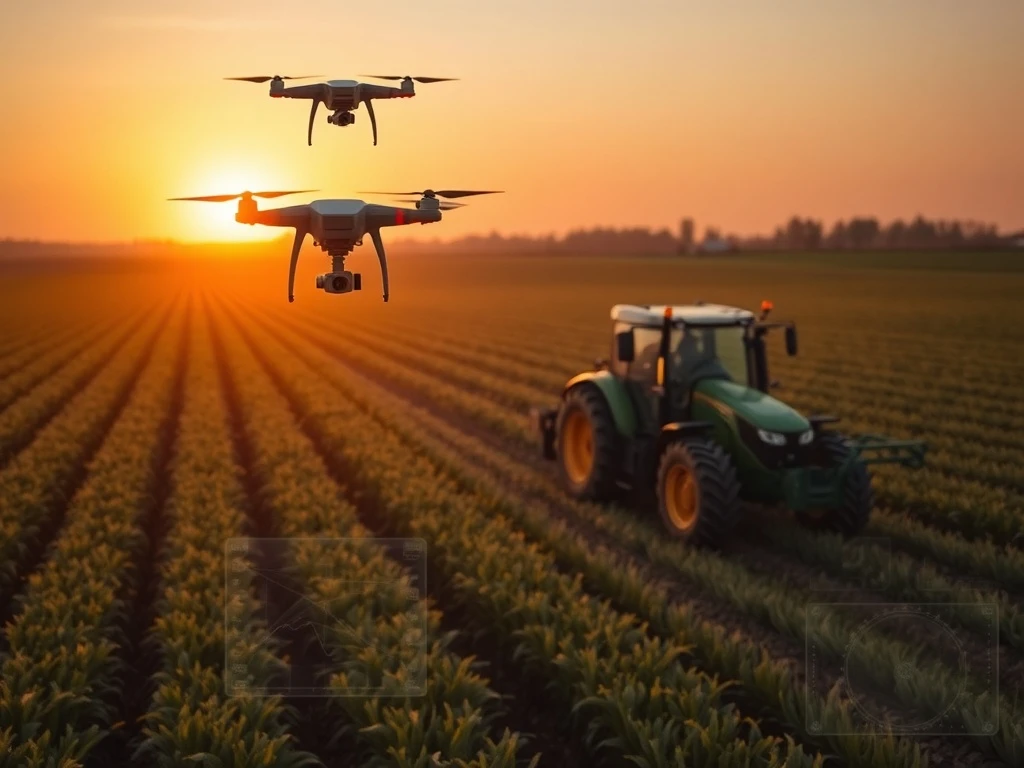Modern agriculture faces unprecedented challenges with growing global populations and climate change pressures. Fortunately, artificial intelligence innovations provide transformative solutions that revolutionize farming practices worldwide. These technological advancements enable farmers to achieve higher yields while reducing environmental impact through data-driven decision making.
Precision Farming Through Artificial Intelligence
Artificial intelligence agriculture applications now enable precision farming at unprecedented scales. Smart sensors collect real-time data about soil conditions, moisture levels, and crop health. Consequently, farmers can make informed decisions about irrigation and fertilization. This approach significantly reduces resource waste while maximizing crop productivity. Furthermore, machine learning algorithms analyze historical data to predict optimal planting times and harvest windows.
Automated Crop Monitoring Systems
Advanced monitoring systems powered by artificial intelligence continuously track crop development. Drones equipped with multispectral cameras capture detailed field images daily. Computer vision algorithms then detect early signs of disease, pest infestations, or nutrient deficiencies. This proactive approach allows farmers to address problems before they escalate. Additionally, these systems can monitor plant growth rates and predict yields with remarkable accuracy.
Intelligent Irrigation Management
Water conservation represents a critical concern in modern agriculture. Artificial intelligence systems now optimize irrigation through sophisticated analysis of multiple data points. These systems consider weather forecasts, soil moisture levels, and plant water requirements. They automatically adjust irrigation schedules to deliver precise water amounts. This technology reduces water consumption by up to 30% while maintaining optimal crop hydration.
Robotic Harvesting and Automation
Labor shortages increasingly challenge agricultural operations globally. Artificial intelligence robotics provide effective solutions through automated harvesting systems. These machines use computer vision to identify ripe produce and delicate manipulation to harvest without damage. They work continuously without fatigue, significantly increasing efficiency. Moreover, they can operate during optimal harvesting windows regardless of time constraints.
Predictive Analytics for Yield Optimization
Artificial intelligence agriculture platforms employ predictive analytics to forecast crop yields and market conditions. These systems analyze vast datasets including weather patterns, soil quality, and historical yield data. They provide farmers with actionable insights for crop selection and management strategies. This predictive capability helps optimize resource allocation and improve profitability. Farmers can make data-driven decisions that maximize both yield quality and quantity.
Sustainable Pest Management Solutions
Traditional pesticide application often involves blanket coverage methods. Artificial intelligence enables targeted pest management through precise identification and localization. Cameras and sensors detect specific pest types and population densities. Systems then calculate optimal treatment areas and required pesticide volumes. This approach reduces chemical usage by up to 50% while maintaining effective pest control. It also minimizes environmental impact and preserves beneficial insect populations.
Supply Chain Optimization
Artificial intelligence extends beyond field operations into agricultural supply chains. Predictive algorithms forecast demand fluctuations and optimize distribution routes. They monitor product freshness and quality throughout transportation. These systems reduce food waste by improving inventory management and logistics. Additionally, they provide consumers with better quality produce while increasing farmer profitability.
Future Prospects and Developments
The integration of artificial intelligence agriculture continues to evolve rapidly. Researchers develop increasingly sophisticated algorithms for crop improvement and resource management. Emerging technologies include plant-level monitoring and genetic optimization guidance. These advancements promise even greater efficiency and sustainability in food production. The agricultural sector stands poised for continued transformation through artificial intelligence innovations.
Frequently Asked Questions
How does artificial intelligence improve crop yields?
Artificial intelligence analyzes multiple data sources to optimize growing conditions. It enables precise resource application and early problem detection.
What are the cost implications for farmers?
Initial investment requirements vary by technology scale. However, most systems demonstrate strong return on investment through reduced waste and increased productivity.
Can small farms benefit from AI agriculture?
Yes, scalable solutions now accommodate operations of various sizes. Cloud-based platforms make advanced analytics accessible to smaller producers.
How reliable are AI predictions in agriculture?
Predictive accuracy continues improving with data accumulation. Most commercial systems now achieve reliability rates exceeding 85% for yield forecasts.
What training do farmers need for AI systems?
Modern interfaces prioritize user-friendliness. Most providers offer comprehensive training and ongoing technical support for implementation.
Are there environmental benefits to AI agriculture?
Yes, precision application reduces chemical and water usage significantly. This approach promotes sustainable farming practices and environmental conservation.






